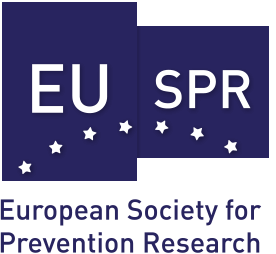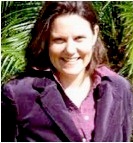| Name | Statement |
| Nick Axford – Social Research Unit, UK | |
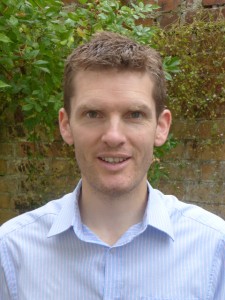 |
I am a Senior Researcher at the Social Research Unit (SRU), Dartington, an independent centre in the UK specialising in applied research on child well-being and children’s services.I would really welcome the opportunity to serve on the EUSPR board and hope I can contribute in various respects, but particularly in relation to dissemination activity (e.g. helping to develop a Society journal), promoting cross-national projects and broadening the Society’s reach (e.g. to early years experts).
My relevant experience is as follows: Since 2011 I have worked with colleagues in the US to develop and apply standards to help identify evidence-based programmes that are ready for implementation in regular service systems (including for www.blueprintsprograms.com). I have also used the standards to help identify promising innovations and then provided training and support to help selected interventions progress ‘up’ the standards. Recently I have been working with colleagues on the European Communities that Care project to identify home-grown and imported programmes that have been tested and found effective in Europe. Last year I helped to develop www.investinginchildren.eu, which disseminates results from cost-benefit analyses of programmes in education, crime, health and child protection. The website is underpinned by a version of the Washington State Institute for Public Policy economic model adapted by the SRU for the UK. I am PI on several RCTs in the UK, one of which, the KiVa bullying prevention programme (from Finland), includes a qualitative component to explore how to scale-up the intervention. The others concern interventions to prevent youth anti-social behaviour. Previously, I have worked with practitioners in the UK to import and, where necessary, adapt evidence-based programmes from the US such as PATHS. I have contributed many articles to www.preventionaction.org – an online news portal for prevention and implementation science – and co-edited the Journal of Children’s Services since 2006. |
| Angelina Brotherhood – Liverpool John Moores University, UK | |
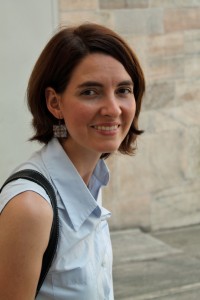 |
I’m a sociologist by training and first started work in the drugs field in 2007. Since 2009, I have been with the Centre for Public Health at Liverpool John Moores University, where I have been fortunate enough to work on a number of EU co-funded projects, such as the “Addiction and Lifestyles in Contemporary Europe Reframing Addictions Project” (ALICE RAP) and the “European Drug Prevention Quality Standards” (EDPQS) project. The latter in particular has contributed to developing prevention science in Europe, as it promotes the use and production of scientific evidence of effectiveness in intervention design. I am also currently writing a doctoral thesis at the Department of Sociology at the University of Vienna. Here, I incorporate an urban studies perspective by exploring the role of space/place in young adults’ substance use.I would be pleased to serve on the board of the Society, having been involved in the EUSPR’s activities nearly from its inception. I first supported the Secretary with administrative matters, and since the last election I have been External Advisor to the Board of Directors. I would see myself as contributing to the Society in two ways. Firstly, as a junior researcher and PhD student, I wish to ensure that the needs of young researchers are met and that they are well represented in the Society. Secondly, I have never been a fan of focussing solely on drugs as the problem, and so I fully support the Society’s expressed commitment to health and wellbeing in general. But I think the Society can do much better to broaden its remit in practice. I would therefore like to work together with other colleagues on the board to extend EUSPR’s membership and engage those working in the other preventions. |
| Andrew Brown – DrugScope, UK | |
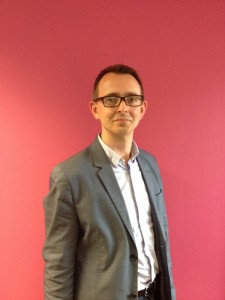 |
I have been a member of EUSPR since its creation and for the last two years it has been a privilege to be an elected member of the Supervisory Board of the EUSPR, to contribute to our debates and help establish the society. I am honoured to have been nominated again in these elections.I am a passionate advocate for prevention science in policy and practice circles in the UK, previously as the Director of Programmes for Mentor UK and now as Director of Policy, Influence and Engagement for DrugScope, the national membership organisation for the drug and alcohol sector.
In the last year I have been instrumental in securing the funding for the first randomised control trial of the Good Behaviour Game in the UK, and was asked to chair the education and prevention sub-group as a member of the UK government’s Expert Panel on Novel Psychoactive Substances. I have strong expertise in both small and large scale project management which gives me skills in managing tight budgets, developing strategic alliances, people management and in trying to achieve impact for beneficiaries. I have been fortunate to lead one European project, the EU Kinship Carers Project, and to contribute to the securing of the second phase of the Girls and Boys Plus project being led by our fellow EUSPR member, Peer van der Kreeft. These experiences have taught me the value of co-operation at a European level, the additional value we get from sharing our learning and the different perspectives that such collaboration brings. I want to support EUSPR to take the next steps in its development, broadening the range of topics that researchers choose to present at our conferences, encouraging early career development, finding ways to sustain conversations between meetings, and continuing to welcome the dialogue between research and practice. I would welcome your support. |
| Krzysztof Brzozka – State Agency for Prevention of Alcohol-Related Problems, PL | |
 |
Krzysztof Brzózka (MSc) – aeronautical engineer, since 2006 the Director of the State Agency for Prevention of Alcohol-Related Problems (PARPA) – a specialized government agency subordinated to the Minister of Health, established to develop the foundations of the state healthcare policy concerning improvement of alcohol-related harm prevention, treatment and public education in Poland. As a Director of PARPA, Krzysztof has been a coordinator of numerous programs and public campaigns on alcohol issues and prevention of alcohol use in Poland.Since 2011 Krzysztof has been a EUSPR member and PARPA is one of the organizations supporting EUSPR. The development of evidence-based prevention and its wide implementation is the apple of Krzysztof’s eye. He finds it crucial to strengthen the links between scientists, practitioners and decision-makers in this field.
Apart from his expertise in prevention, Krzysztof gained extensive experience as a person engaged in many social fields: the office director in the Metropolitan Association of the City of Warsaw, the mayor of Warszawa – Włochy Municipality, the lecturer of the Public Procurement Law, plenipotentiary of the committee for a Legislative Initiative regarding a law for financing medical services and even the chairman of the organizational committee of Smart Jazzpol Festival. His managerial, political and administrative skills and experiences, as well as his ability to co-operate with different professionals, may be very helpful to advance EUSPR activities. It is also worth remembering that, since EUSPR operates in accordance with the Polish legislations, Krzysztof’s location in Poland may be very useful for dealing with various bureaucratic issues. |
| Amador Calafat – IREFREA, ES | |
 |
Dr Amador Calafat is the coordinator of the European Institute of Prevention Research (Irefrea) network. He is a Psychiatrist working in Palma de Mallorca, Spain. He has been actively involved in research in risk behaviour and implementation of programmes (family, school and recreational drug use) since 1980. He has been leading or has participated in different European funded projects (see www.irefrea.org for projects and publications). He is actively involved in networks like Club Health and Civil Society Forum on Drugs. He is the editor of the journal Adicciones (www.adicciones.es), an international journal indexed in the main database. He is also the coordinator of the Spanish platform on evidence based prevention (www.prevencionbasadaenlaevidencia.net). |
| Laura Ferrer-Wreder – University of Stockholm, SW | |
| Laura Ferrer-Wreder Ph.D., is an Associate Professor at Stockholm University’s Department of Psychology. Her research is wide ranging and involves longitudinal and intervention studies and scholarly review work in the areas of prevention science, positive youth development, child/adolescent problem behaviors, and culture. She has recently served as a Member at Large on EUSPR’s Board of Directors, and contributes to other international societies such as the Society for Research on Adolescence’s Consensus Committee and the Society for the Study of Human Development’s Steering Committee. She is active in editorial work for the Journal of Adolescence (assistant editor) and Child and Youth Care Forum (associate editor). Important future priorities for EUSPR should be to grow the membership of the society and to better support early career scholars. The society should also continue to be a forum for innovation, as well as a staunch advocate for collaborative efforts among scholars, practitioners, and policy makers. | |
| Rosaria Galanti – Karolinksa Institutet, SW | |
![RG[small]](https://euspr.org/wp-content/uploads/2013/02/RGsmall.jpg) |
To be brief, I am professor of Public Health Epidemiology at the Karolinska Institutet in Sweden, also one of the founders and earliest supporters of the EUSPR, serving as first interim President until the Society became a legal entity, and as past honorary president thereafter. I am also a member of the Steering Board of the SPAN initiative (http://www.span-europe.eu/). My research covers a large spectrum of topics, from determinants of disease risk to evaluation of public health interventions, this latter having been preponderant in the latest years.It is with deep pleasure and a bit of pride that I consider the Society’s growth and reach during the latest three years, its scientific commitment becoming more and more recognized in the European research environment.
Yet, we need to embrace old and new challenges. How to make the Society to grow numerically and attract new members, but also and perhaps more important how do we reach professionals and scientists in the variety of prevention and health promotion sectors that are already represented in Europe. My engagement in the SPAN project, especially in mapping prevention research entities and projects has taught me several lessons. First, we need a common understanding of what prevention research is and of its priorities. Next, we need to make its methodology stronger, and its results more visible. Above all, we need to inject human resources into this sector, trained and energetic young scientists who are also willing to cooperate to cover the whole spectrum of the Public Health continuum, from the etiology of health problems to development and evaluation of solutions, to implementation and advocacy. To these three endeavors I intend to devote my effort in the near future, beyond and above my potential role in the Board. |
| Frederick Groeger-Roth – Crime Prevention Council of Lower Saxony / Ministry of Justice of Lower Saxony, DE | |
| The EUSPR represents a great opportunity for developing prevention science in the European context. I am honored to be nominated as a member at large position for the Board of Directors. In my professional career I am committed to the idea of enhancing practice through applying scientific knowledge and developing further research questions with practical relevance. My current position in a prevention council on state level gives me the opportunity to contribute to the field by advising local prevention bodies in applying science-based prevention strategies, organizing state-wide youth surveys and being in charge of a database of recommended evaluated prevention programmes. Beyond that I am involved as an advisor for the German Congress on Crime Prevention. I am very pleased to serve currently as a project coordinator for an EU-funded research project on Communities That Care – CTC. This project contributes to the advancement of prevention science in Europe amongst others by examining cross-national comparisons of the relationship of risk- and protective factors and youth behavioural outcomes and by building up a databank of evaluated prevention programmes in Europe. For the future development of the EUSPR I would like to get involved as a board member in fostering the cross-disciplinary networking. Because of my current working field I would willingly invest in making enhanced connections to the crime / violence prevention field. This is also connected with the goal to achieve a higher involvement of policy makers and practitioners. |
|
| Ferdinand Keller – University Hospital, Ulm, DE | |
 |
One important impetus for the advancement of prevention science has been the development of statistical methodologies that have improved our understanding as to how prevention interventions improve outcomes. As such ongoing training in the application of advanced statistical models such as longitudinal hierarchical models and growth mixture models is needed. If I were elected to the EUSPR Board, I would be glad to foster these methodological aspects, to help in improving the dissemination and application of appropriate statistical methods, and, if favoured by other members, to take the lead in developing a network of members interested in emergent statistical methodologies similar to the U.S.-based Prevention Science and Methodology Group. |
| Michal Molcho – National University of Ireland, Galway, IE | |
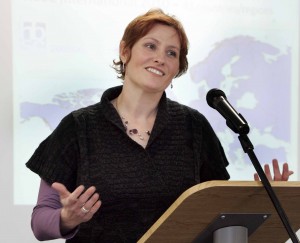 |
Dr Michal Molcho is the Director of the Health Promotion Research Centre in NUI Galway, and a senior member of the international Health Behaviour in School-Aged Children (HBSC). Trained as a Health Sociologist, her research focuses on injury prevention and social inequalities, as well as risk behaviours, particularly among adolescents. In 2011 she acted as a consultant to the Violence and Injury Prevention programme in WHO Region for Europe. She is a participating in various European funded projects and in a Work Package leader on the SPAN project. Dr. Molcho have published numerous papers, book chapters and reports in the area of adolescent health. |
| Josipa Mihić – University of Zagreb, HR | |
 |
My name is Josipa Mihic and I was born on 10 March 1983 in Zagreb, Croatia. In 2007 I have graduated from the Department of Behavioural Disorders at the University of Zagreb, Faculty of Education and Rehabilitation Sciences with a degree in Social Pedagogy.Since 2008 I worked at the mentioned Faculty as a research assistant on the project „Communities That Care – Implementation and Evaluation of Community Based Prevention“. In the same year I have enrolled in the postgraduate doctoral program “Prevention Science – Prevention of Mental and Behaviour Disorders and Mental Health Promotion” at the Faculty of Education and Rehabilitation Sciences.
In 2013 I have defended doctoral thesis „Study of Effectiveness of Prevention Programs“ (mentor: Clemens Hosman, University of Maastricht and Radboud University in Nijmegen, the Netherlands). Together with my colleague (Miranda Novak, PhD) I have developed 32 hours intervention “Training for prevention” aimed at promotion of evidence based prevention. As assistant professor I’m involved in the teaching of prevention courses (Theories of prevention, Research in prevention, Prevention of externalizing and internalizing behavioural problems…). I have actively participated at many international conferences and published seven scientific papers and several book chapters in the field of prevention. I’m involved in several international research projects focused on community based prevention and promotion of socio-emotional learning. I would like to have a chance to contribute to the mission of the EUSPR, especially concerning the networking and development of prevention capacities in Europe and abroad as member of American Society for Prevention Research and European Network for Social and Emotional Competence. I’m very much interested in initiating and supporting international initiatives focused on advancing the quality of prevention research, creating policies for prevention sensibilization and promotion, developing modern approaches in prevention, advancing professional development and popularization of ethical standards in prevention. |
| Metin Özdemir – Örebro University, SW | |
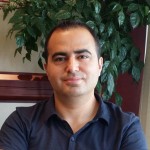 |
I have received my doctoral training in the Community and Applied Social Psychology Program at the University of Maryland, Baltimore County, USA, in 2009. Currently, I am a senior lecturer at the School of Law, Psychology, and Social Work, Örebro University, Sweden, and affiliated with the Center for Developmental Research. My research encompasses both basic and prevention research. My first line of research focuses on identifying risk and protective factors for the social and behavioral adjustment and development of adolescents. My second line of research focuses on evaluation of preventive interventions for parents and adolescents, and understanding the mechanisms and conditions that explain how and when prevention programs work. At Örebro University, I have been involved in development of a 2-year master’s program with the involvement of researchers from both psychology and public health. Currently, I serve as the coordinator of this program, which exclusively focuses on prevention theory, methodology, and application combining both psychological and public health approaches.
As a board member of EUSPR, my goal is to contribute to the advancement of advanced level training on prevention for students, junior researchers, and practitioners. |
| Harry Rutter – London School of Hygiene and Tropical Medicine, UK | |
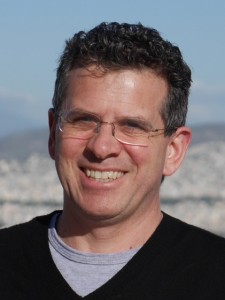 |
I am a public health physician and academic, working primarily on obesity, physical activity, environmental sustainability, built environment, health inequalities, and the challenges of developing and using evidence in the context of complex system problems. I established and was director of the English National Obesity Observatory from 2007-2011, and I now work as an academic at both the London School of Hygiene and Tropical Medicine and Public Health England. I established the National Child Measurement Programme, the largest child obesity surveillance programme in the world. I have a long track record of research, research translation, and contributions to policy development on tackling non-communicable diseases. I sit on a number of different steering and advisory groups for WHO and others across Europe, as well as in the UK.If elected I would advance the society by supporting its aims, and helping to build and strengthen its networks. Strong cross-disciplinary collaboration is essential for effective prevention research, and by working with colleagues across the EUSPR on both existing and new projects I would aim to help build a more effective and productive Society. |
| Zili Sloboda – Applied Prevention Science, USA | |
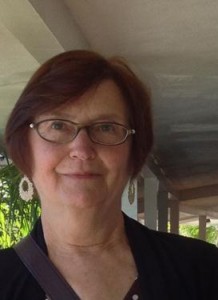 |
The advancement of prevention science has been a priority for me for over twenty-five years. The true highlights of my professional life have been:
Like any evolving science it will be necessary to have international recognition that there is a field of prevention science and of the importance of its application to enhance the health and safety of our children, parents, workers, and older adults. My vision is to work with EU-SPR in achieving this goal. This can be done not only through the continuing support of prevention science through EU-SPR’s conferences and particularly, its workshops. But there are other opportunities for the EU-SPR to extend prevention science internationally:
These collaborations will bring together prevention researchers and practitioners worldwide. Such collaborations will provide opportunities to learn together and to contribute to the establishment of the science of prevention. |
| Peer van der Kreeft – University College, Ghent, BE | |
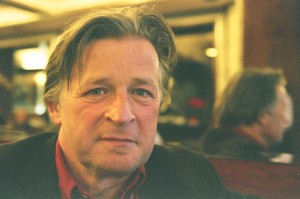 |
I am a social educator and have been leading a prevention service at De Sleutel in Belgium for 25 years until 2011 when I was appointed as a full time lecturer/researcher at the University College Ghent. Internationally, I presided the EU Prevnet Network from 2002 – 2006, and have led the EU-DAP Drug Abuse Prevention Intervention group and the EU-DAP Faculty project for program adaptation and training of trainers. I have been involved in studies and research projects always from the practitioner’s perspective. I try to contribute to the fascinating EUSPR growth from that same point of view. |
| Federica Vigna-Taglianti – University of Torino, IT | |
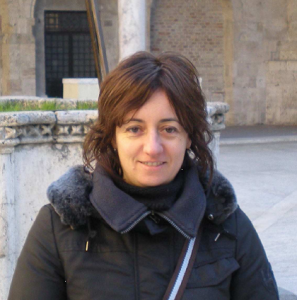 |
Federica Vigna-Taglianti is Assistant Professor of Public Health at the University of Torino, Italy. She graduated as MD, specialized in Preventive Medicine and Public Health at the University of Torino, and had the MSc in Epidemiology at the London School of Hygiene and Tropical Medicine. Since many years she collaborates with the Piedmont Centre for Drug Addiction Epidemiology in North West of Italy.Her research interest concern the evaluation of effectiveness of treatments and prevention interventions for tobacco, alcohol and drug addiction and abuse, with specific focus on adolescent health, gender differences and health inequalities.
She conducted several systematic reviews on behalf of the Cochrane Collaboration Drugs and Alcohol Group. She was involved in the analysis and results dissemination of the Italian heroin addicts’ cohort VEdeTTE and she is currently involved in the analysis and results dissemination of the VOECT cohort on Italian Therapeutic Community patients. She is part of the EU-Dap steering committee group since the beginning. She was involved in the analysis and results dissemination of the EU-Dap trial, and she was responsible of the replication of the trial in East European countries and in Arabic countries. She is currently involved in the analysis of mediation effects and in maintaining and monitoring the dissemination of the Unplugged program in Italy. If elected, she will promote the cooperation of scientists of different background within the EUSPR, the design of collaborative studies to evaluate new preventive interventions, and the exchange of teaching, research and learning occasions for early career scientists. |
